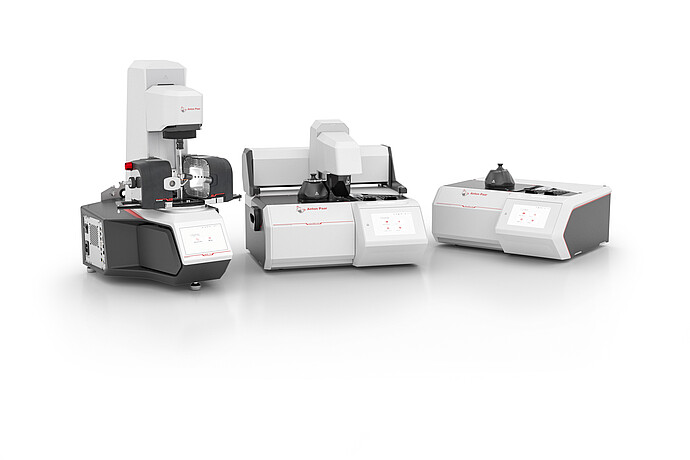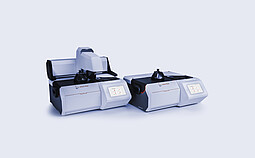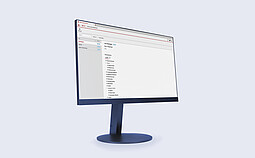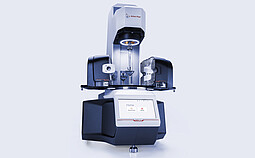
Thermal Analyzers
Expand Material Characterization with Thermal Analysis Instruments
Take your material characterization to the next level with our game-changing portfolio for thermal analysis. Detect endothermic and exothermic material transitions via differential scanning calorimetry (DSC). Measure the mechanical properties of a material in bending, tension, torsion, and compression with dynamic mechanical analysis (DMA). And determine dimensional changes of a sample with thermomechanical analysis (TMA).
Anton Paar Products
The gamechanger: Our portfolio of thermal analyzers
The Julia DSC series’ patented air-cooling principle drops temperatures to -35 °C without the need for an external cooling device. An innovative cooling module approach gets you down to -170 °C with a single instrument. The powerful MCR 703 MultiDrive platform enables dynamic mechanical analysis of solid, soft, and liquid samples: bending, tension, compression, torsion, standard and rheological measurements, and thermomechanical analysis (TMA) – perform them all with one instrument.
Modular instruments for a wide variety of samples
Expand the temperature range of the Julia DSC series by simply exchanging the cooling modules to get down to -170 °C. Increase your throughput with our custom-designed Julia DSC autosampler. With the MCR 703 MultiDrive, you can perform classic dynamic mechanical analysis with the additional option of sophisticated rheological measurements – supported by a range of measuring systems and accessories.
Multifunctional operating software
Julia Suite – created by users for users – intuitively takes you through the DSC measurement process in four easy steps, all in one workspace. Step-by-step guidance and smart calibration wizards streamline your workflow. The sophisticated RheoCompass software helps you find predefined or customized test templates, tailor tests and analysis definitions, export your data, and generate reports.
High-precision temperature control for thermal analysis
With our Julia DSC thermal analyzers, you’re able to go from -170 °C all the way up to +700 °C. Plus, you can easily exchange modules for future needs. Conduct dynamic mechanical analysis in torsion, tension, bending, and compression from -160 °C to +1,000 °C with the MCR 703 MultiDrive. The temperature distribution is homogeneous with a minimum gradient.
Unique methods to characterize polymers
Investigate melting and crystallization behavior, glass transition, oxidative stability, or curing processes of materials. Assess the compatibility of polymer blends. Comprehensively characterize the temperature, frequency, and strain amplitude dependence of polymers, and quantify the viscoelasticity with the MCR 703 MultiDrive.
Webinars
We offer you a great and constantly growing choice of live webinars and recordings on products, applications, and scientific topics.
Show more


